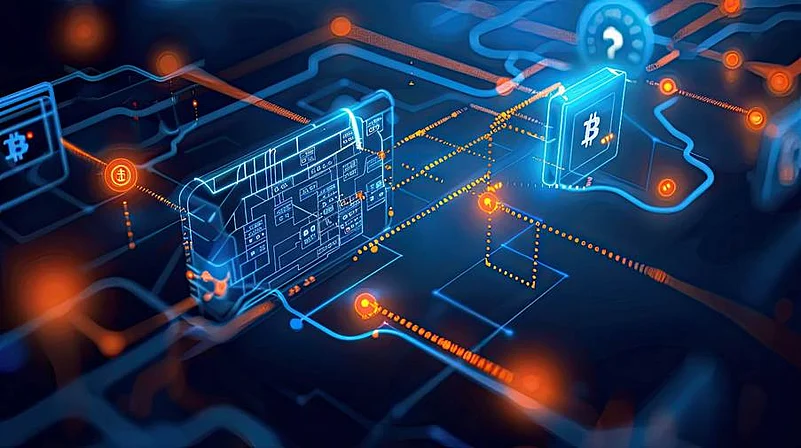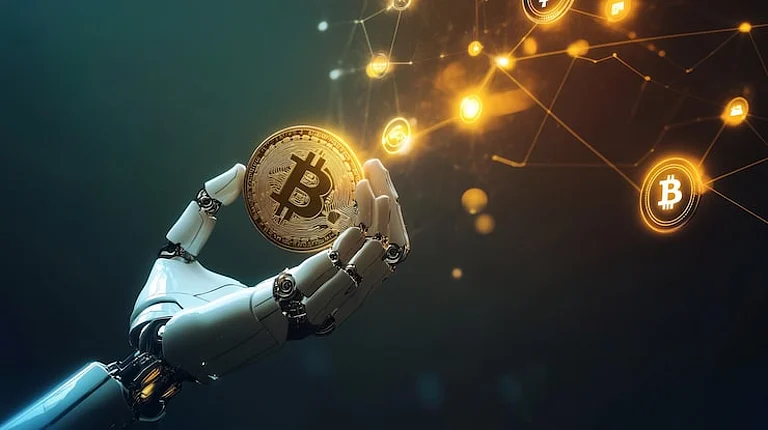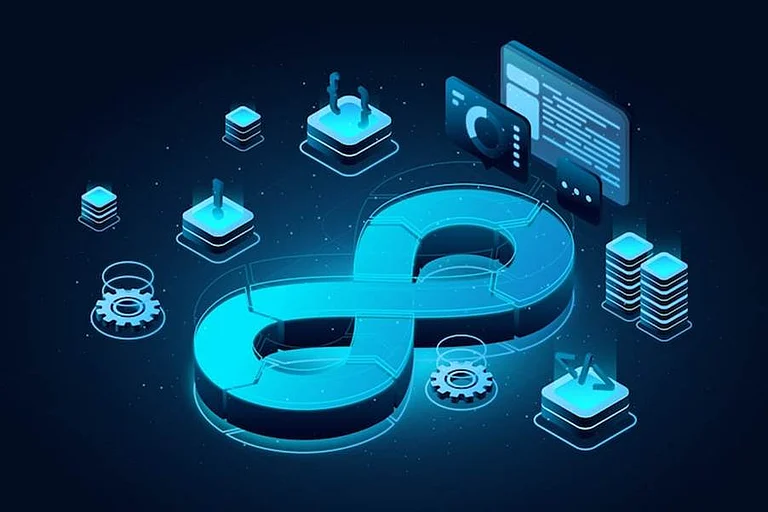Decentralized Autonomous Organizations (DAOs) promised a future of transparent, community-led governance. However, they are often slow, inefficient, and struggle with voter apathy. The solution is here: integrating Artificial Intelligence.
An "Intelligent DAO" infuses the rigid structure of a traditional DAO with the dynamic, adaptive power of AI. By analyzing data, predicting outcomes, and automating complex tasks, AI transforms DAOs from simple voting systems into learning, evolving organizations. This guide covers what Intelligent DAOs are, the key projects leading the space, and the challenges they face.
What Problems Do Intelligent DAOs Solve?
Integrating AI into a DAO's framework solves some of the biggest challenges in decentralized governance.
Automates Complex Decisions: Instead of forcing members to manually review every proposal, an AI can analyze it against historical data, model its economic impact, and provide a risk/reward summary. This allows voters to make informed decisions faster.
Increases Operational Efficiency: DAOs generate massive amounts of discussion on Discord and forums. AI tools can scan these conversations, summarize key arguments, and identify emerging consensus, saving members hundreds of hours.
Creates Meritocratic Reputation Systems: AI can build sophisticated reputation scores based on a member's expertise, participation quality, and reliability over time, rather than just how many tokens they hold. This promotes genuine contribution over wealth.
Optimizes Treasury Management: For DAOs managing large treasuries, AI can optimize grant distribution. For example, it could monitor a project's on-chain progress and automatically release funding when a milestone is verifiably met, reducing bias and manual oversight.
Top Intelligent DAO Projects to Watch in 2025
While the field is new, several projects are pioneering the integration of AI into governance.
Fetch.ai (FET): This platform is a leader in creating "Autonomous Economic Agents" - AI agents that can represent individuals or DAOs. These agents can automate governance participation by analyzing proposals and executing votes on their owner's behalf, making governance more accessible.
SingularityNET (AGIX): As a decentralized marketplace for AI services, SingularityNET uses its DAO to govern the platform's evolution. AI is proposed to help manage the reputation of different AI models, allocate funding for new research, and ensure the network develops ethically and effectively.
Golem (GLM): While primarily a DePIN project for decentralized computing, Golem's resource-allocation model provides a blueprint for intelligent DAOs. An AI layer could optimize how computing jobs are priced and distributed across the network, acting as an intelligent resource manager for the entire ecosystem.
Challenges & Legal Risks of AI-Powered DAOs
Integrating AI into DAOs presents significant hurdles that must be addressed for safe and fair implementation:
The "Black Box" Problem: Many advanced AI models are opaque, meaning even their creators can't fully explain their decision-making process. In a DAO, this lack of transparency can erode trust and undermine the core principle of verifiable governance.
Legal and Ethical Liability: If an AI makes a decision that results in the loss of treasury funds, who is responsible? The DAO members, the AI's developers, or someone else? This creates a complex legal gray area with no clear precedent.
Data Privacy Concerns: AI models require large amounts of data to function effectively. In a transparent blockchain environment, sourcing and using this data without violating user privacy is a major technical and ethical challenge.
Risk of Algorithmic Bias: An AI is only as unbiased as the data it's trained on. If the training data contains historical biases, the AI may perpetuate them in its decisions, leading to unfair resource allocation or skewed voting recommendations.
The Future: Human Oversight, AI Execution
The integration of AI into DAOs is not about replacing human decision-making; it's about augmenting it. The most successful Intelligent DAOs will use AI to handle the heavy lifting of data analysis, operational efficiency, and task automation, freeing up community members to focus on high-level strategy and ethical oversight.
While significant challenges around transparency and bias remain, the path forward is clear. By combining the verifiable trust of the blockchain with the adaptive power of AI, Intelligent DAOs offer a blueprint for creating organizations that are not just decentralized, but also efficient, resilient, and truly smart.


























